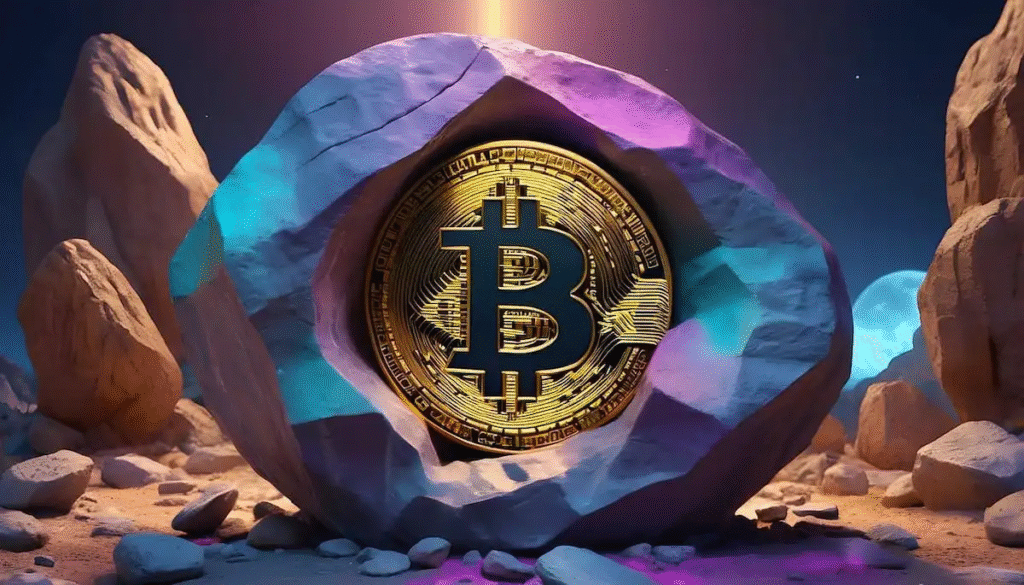
In recent years, blockchain technology has evolved far beyond its original use in cryptocurrency. In 2025, the United States is recognizing blockchain as a transformative tool for both the private and public sectors, with applications that reach across finance, logistics, healthcare, identity verification, and government operations.
While early attention focused on Bitcoin and Ethereum, today’s policymakers, entrepreneurs, and corporate leaders are increasingly exploring how blockchain can reshape the infrastructure of the U.S. economy—driving transparency, efficiency, and security.
So what role does blockchain currently play in the American economy, and what opportunities lie ahead?
What Is Blockchain, Really?
Before diving into its economic impact, it’s worth clarifying what blockchain is.
A blockchain is a decentralized digital ledger that records transactions across a network of computers. Each entry is time-stamped, cryptographically secured, and (in public chains) visible to all participants. The key innovation is that no central authority is required to verify or manage the data.
This distributed nature gives blockchain several properties that are especially relevant to the economy:
- Transparency
- Immutability
- Reduced fraud risk
- Decentralization
- Efficiency in multi-party transactions
The Financial Sector: Where Blockchain Is Already Working
1. Payments and Settlements
The U.S. financial system has long relied on intermediaries for settlement. Blockchain platforms are now enabling real-time cross-border payments and instant domestic settlement, reducing reliance on traditional banking rails like SWIFT or ACH.
Companies like Ripple and Circle (issuer of USDC, a dollar-backed stablecoin) are offering fast, low-cost alternatives that operate 24/7—something traditional finance can’t match.
2. Tokenized Assets
Tokenization is the process of representing real-world assets (like stocks, bonds, or real estate) as digital tokens on a blockchain. In the U.S., several fintech startups and asset managers are experimenting with tokenized treasury bonds, fractional real estate, and equity tokens.
This opens the door to increased liquidity, wider access to investment opportunities, and faster settlement—a potentially massive shift in how capital markets operate.
3. Decentralized Finance (DeFi)
Although still evolving, DeFi protocols—based mostly on Ethereum—are being adopted by sophisticated U.S. investors and even hedge funds. These platforms allow borrowing, lending, and yield farming without intermediaries.
While regulation is still catching up, the idea of programmable financial services is proving to be a powerful innovation.
Beyond Finance: Blockchain in Other Sectors
Blockchain is gaining traction across a wide range of industries in the U.S.:
1. Supply Chain and Logistics
Blockchain can provide end-to-end traceability for products—something especially useful in sectors like food, pharmaceuticals, and electronics.
U.S. companies like IBM (with its now-retired but foundational Food Trust initiative) have laid the groundwork for supply chain networks that reduce fraud, enable recalls, and improve logistics efficiency. Walmart and Tyson Foods have also piloted blockchain-based traceability systems.
2. Healthcare
Patient data privacy, interoperability, and secure medical record sharing are long-standing challenges in American healthcare. Blockchain is being explored as a solution for:
- Decentralized health data records
- Drug traceability
- Insurance claim verification
Startups and hospital systems are piloting blockchain to make healthcare more secure, patient-centered, and interoperable.
3. Digital Identity
In a country where identity theft is rampant and password-based systems are failing, blockchain offers a new approach: self-sovereign identity. Instead of handing over personal data to dozens of platforms, users control access to verifiable credentials stored on blockchain.
States like California and Illinois are exploring decentralized ID pilots, while companies like Civic and Spruce work on blockchain-based identity verification tools.
Public Sector and Government Use Cases
The U.S. government has historically been cautious with blockchain, but that’s beginning to change.
1. CBDC Research
The Federal Reserve is exploring a Central Bank Digital Currency (CBDC), often called a «digital dollar.» While no official launch has occurred, research and pilot programs are underway to assess the risks and benefits of digitizing the U.S. dollar on blockchain infrastructure.
2. Voting and Elections
Several counties and states have considered blockchain voting as a way to increase security and reduce fraud. While challenges remain, the concept of verifiable, tamper-proof ballots is gaining attention in the wake of recent election controversies.
3. Public Records and Land Titles
Blockchain could be used to digitize and secure everything from land deeds to licensing and permits. Governments like Cook County, Illinois, and localities in Texas and California have run limited tests on blockchain-based land registries.

Barriers to Adoption
Despite the momentum, several challenges still prevent full-scale adoption of blockchain in the U.S.:
- Regulatory ambiguity: Especially around securities laws and tax treatment
- Scalability: Some blockchains struggle with transaction throughput and high fees
- Interoperability: Many platforms don’t yet “talk” to one another
- Public understanding: Many businesses still don’t understand how or why to use blockchain
- Cybersecurity risks: Smart contract bugs and exploits continue to impact trust
Nonetheless, these hurdles are not insurmountable. As enterprise adoption grows and policymakers clarify rules, the barriers are steadily being lowered.
Looking Ahead: Opportunities for the U.S.
The United States is in a strong position to lead the next wave of blockchain innovation. Some key opportunities include:
- Becoming a hub for compliant Web3 startups
- Attracting global capital into tokenized U.S. assets
- Modernizing outdated government systems
- Improving data security in critical infrastructure sectors
- Building a blockchain-native digital identity layer for citizens
If approached strategically, blockchain can enhance both economic competitiveness and technological sovereignty in the U.S.
Conclusion
Blockchain technology is no longer an experiment—it’s a foundational innovation shaping the future of the American economy. From Wall Street to local government offices, its potential applications are vast and increasingly practical.
While questions remain about regulation, scalability, and adoption pace, one thing is clear: blockchain is moving from the periphery to the core infrastructure of the digital economy in the United States.
The opportunities ahead are enormous. Whether the U.S. chooses to lead or follow will depend on how policymakers, businesses, and communities embrace this next digital frontier.